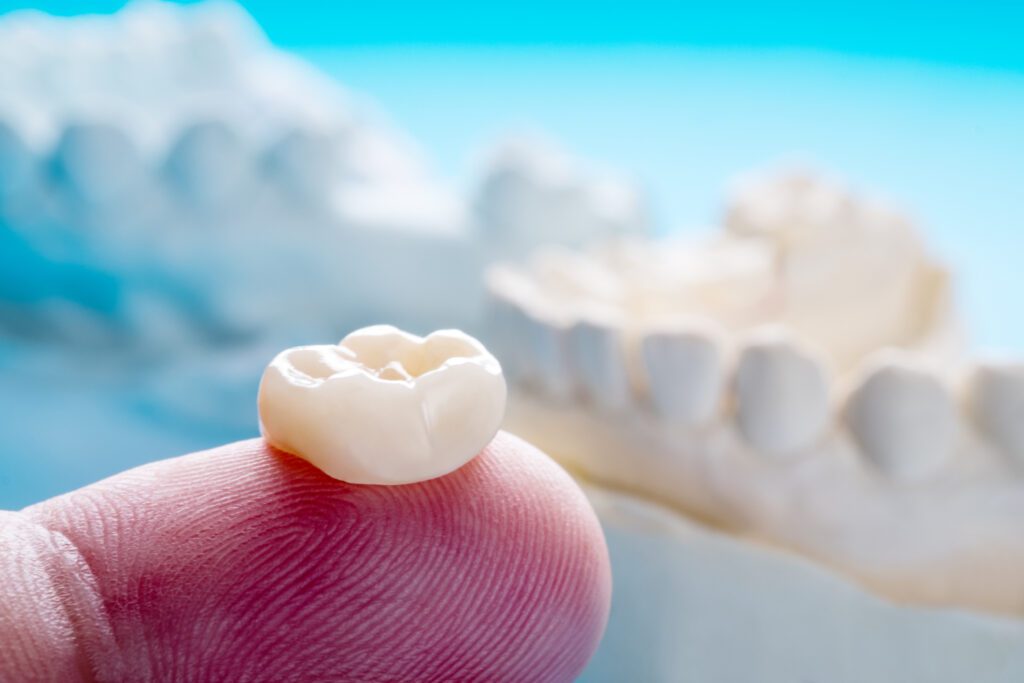A dental crown is a dental restoration that can fit over a decayed, damaged, or cracked natural tooth. Crowns are caps that may be made of many different materials. However, we prefer tooth-colored materials because they offer a more seamless result. We provide dental crown treatment in our Colmar, PA, dental office using high-quality, durable materials. Our dental team ensures patients receive quality restorations that blend in with their smiles.

Dental Crown Materials
Crowns are made of various materials, such as porcelain, gold, acrylic resin, or a mix. We provide porcelain or ceramic dental crowns because they have the most natural appearance. Using high-quality materials helps ensure that dental crowns last for many years.
Our zirconia crowns are made of Zirconium Dioxide, a type of ceramic. Zirconia crowns are wear and stain-resistant. Dental crowns made of Zirconia are also some of the most durable because of the strong material. Emax crowns are made of Lithium Disilicate glass and can be layered with porcelain.
We will also recommend Emax crowns for patients who have just received root canal treatment; these crowns will protect worn and weakened teeth and add structure to the tooth’s surfaces. We can use Zirconia and Emax crowns on the anterior and posterior teeth.
Dental Crown in Colmar, PA
To begin dental crown treatment, we will numb the treated tooth and remove any signs of decay to prepare the tooth. We will also resculpt the tooth to provide an ideal fit for the crown. Then, we will make a dental impression of your teeth to send to a dental lab, where technicians create the custom-made crown.
We will also create a temporary crown out of acrylic resin and fit it onto the tooth while the permanent custom-made crown is made. After two weeks, we will remove the temporary crown and fit the permanent crown onto the tooth. Once we ensure the crown has a proper look and fit, the dentist cements it.
The dental crown process consists of two to three visits over three to four weeks. After the procedure, patients must maintain proper dental hygiene, including daily brushing and flossing, to ensure healthy, bacteria-free teeth, gums, and crowns. Regular care helps prevent gum disease. Given proper care, your crowns can last for many years.
What are inlays and onlays?
Also known as partial crowns, inlays and onlays cover smaller areas of the smile. Onlays fully cover the top of the tooth, while inlays cover only the chewing surfaces of teeth, within the sides or cusps of the tooth. Like crowns, inlays, and onlays use tooth-colored materials that allow restorations to blend in with the rest of the smile seamlessly.
Restore Your Teeth Today
Do you need to treat a damaged or worn tooth? Call Dental Health Group for restorative dental care with dental crowns at (215) 774-6702. You can also schedule a dental appointment with us online. If you have any questions about dental crowns, inlays, onlays, or related treatments, let us know, and we will be happy to help.
